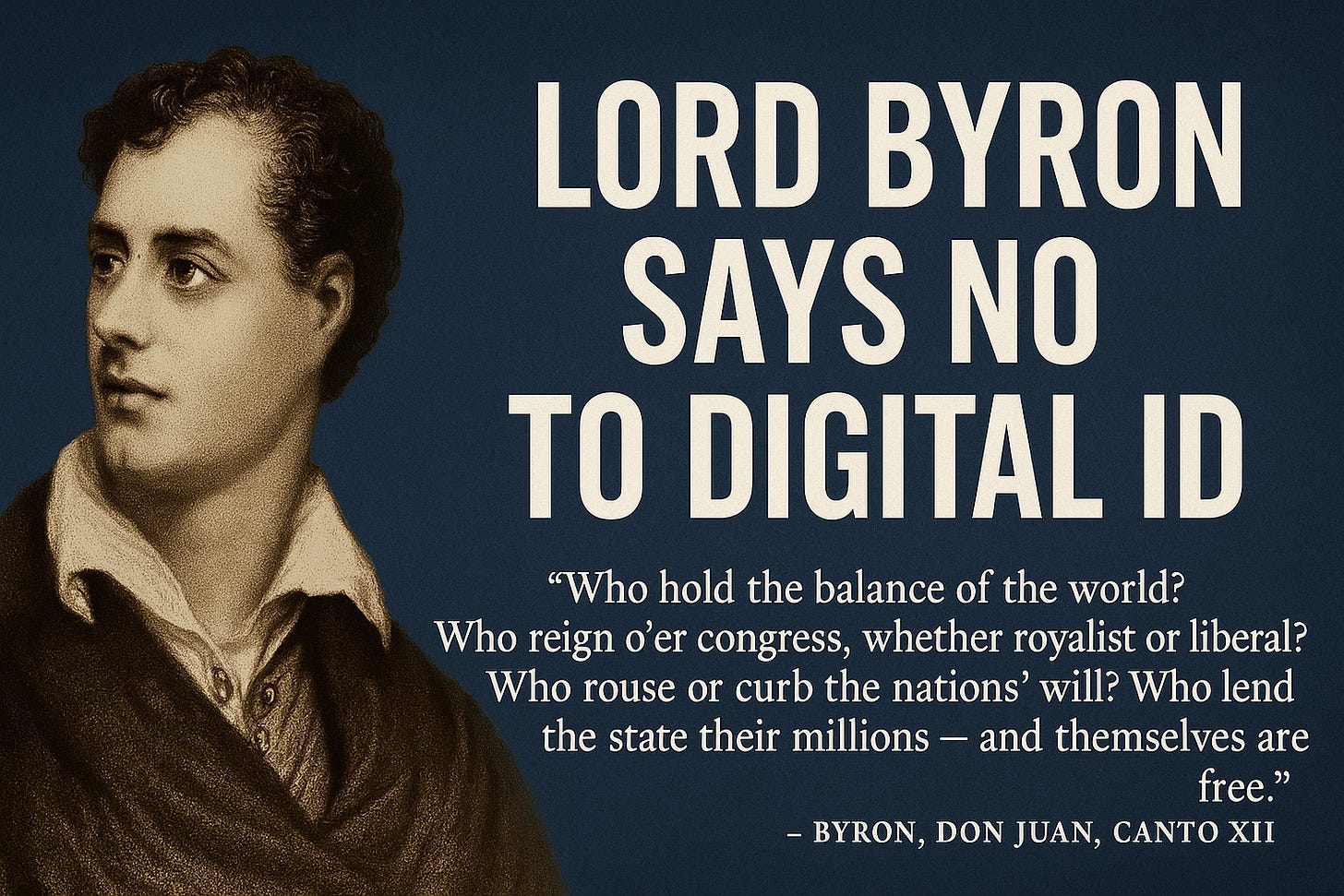Lord Byron Says NO to Digital ID — and the British Spirit Says NO Too
If you haven’t yet signed the petition to stop the proposed UK Digital ID, do it now. Over two million Britons have already said no to creeping state control. Add your voice: we are at a turning point.
→ https://petition.parliament.uk/petitions/730194
Byron’s Warning
Lord Byron was no friend to authority. He saw through the pretensions of kings, bankers, and governments alike. In Don Juan (Canto XII, Stanza 85), he skewered the Rothschild family — symbols of financial power in his age:
“Who hold the balance of the world?
Who reign o’er congress, whether royalist or liberal?
Who rouse or curb the nations’ will?
Who lend the state their millions — and themselves are free?”
Byron’s voice echoes down the centuries: wealth and power concentrate, governments bend, and the people pay the price. His message was clear — never surrender liberty to the schemes of elites.
The Peasants’ Revolt
History shows that Britons, for all their mild manners and politeness, are not infinitely patient. In 1381, the Peasants’ Revolt swept across England. Wat Tyler and his followers challenged serfdom, corrupt officials, and the arrogance of power.
For a moment, it seemed as though the ruling class would be swept away. The revolt only faltered because the young King Richard II deceived Tyler during negotiations at Smithfield — and Tyler was struck down.
But the spirit of resistance lived on. From Magna Carta to the English Civil War, from the Chartists to the Suffragettes, Britons have fought to keep their freedoms against encroaching authority.
Digital ID: Rejected Before
This is not the first time Digital ID has been pushed on the British people. In 2010, Gordon Brown’s government attempted to roll out national ID cards. The scheme was rejected as too expensive, too invasive, and fundamentally unnecessary.
Now, more than a decade later, the idea is back — dressed up in new language, but with the same risks: a step towards surveillance, control, and the erosion of rights hard-won over centuries.
Remember the War Generation
During the Second World War, ID cards were reluctantly tolerated. But everyone understood: it was about defeating Hitler, not about making everyday life subject to checkpoints and bureaucrats. After the war, those cards were scrapped. The lesson was simple: free people should not have to show papers to live their lives.
The Anglo-Saxon tradition of common law is rooted in the idea that laws should serve the people, not bind them. England was among the first to codify rights for the governed rather than privileges for the governors.
Do We Really Want This Descent?
The question today is stark: do we want to drift into a new form of totalitarianism, dressed in the language of efficiency, technology, and security? Or do we want to honour the spirit of Byron, Tyler, and countless others who refused to bow?
Britain’s history shows that when the people are roused, they cannot be ignored. Digital ID is the thin end of a very dangerous wedge.
Sign the petition. Defend your freedoms. Keep Britain free.
→ https://petition.parliament.uk/petitions/730194


